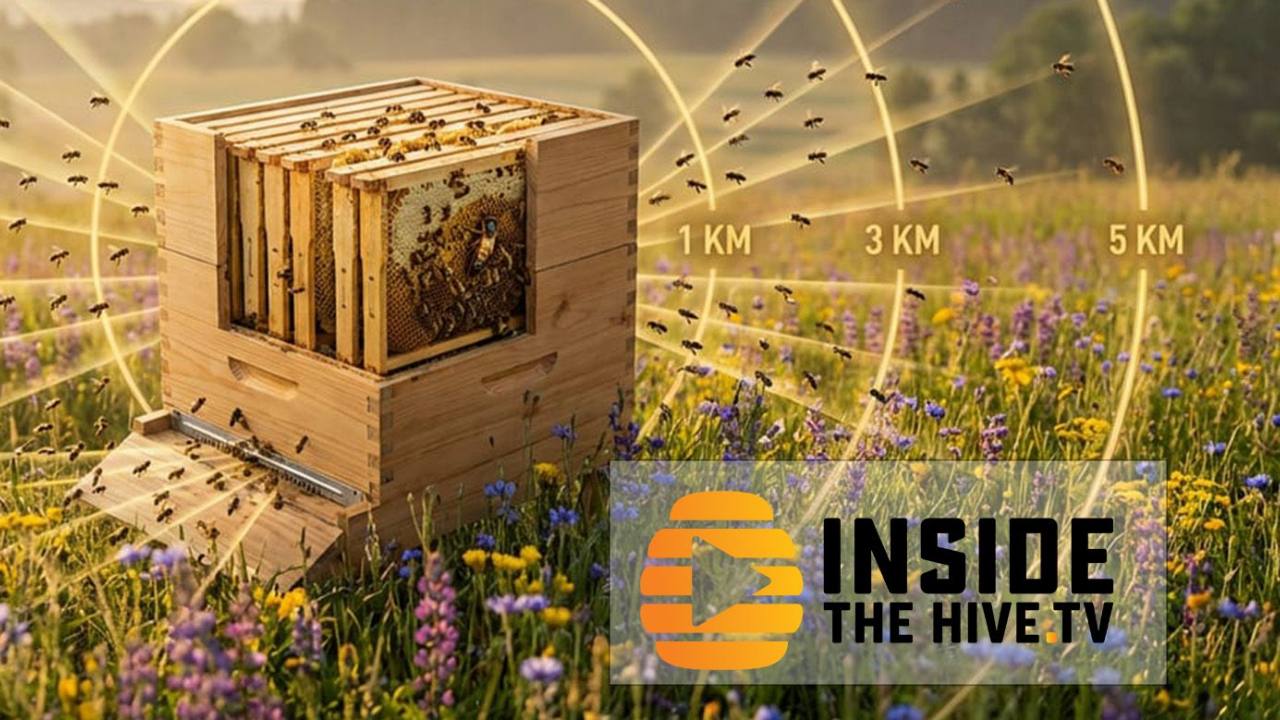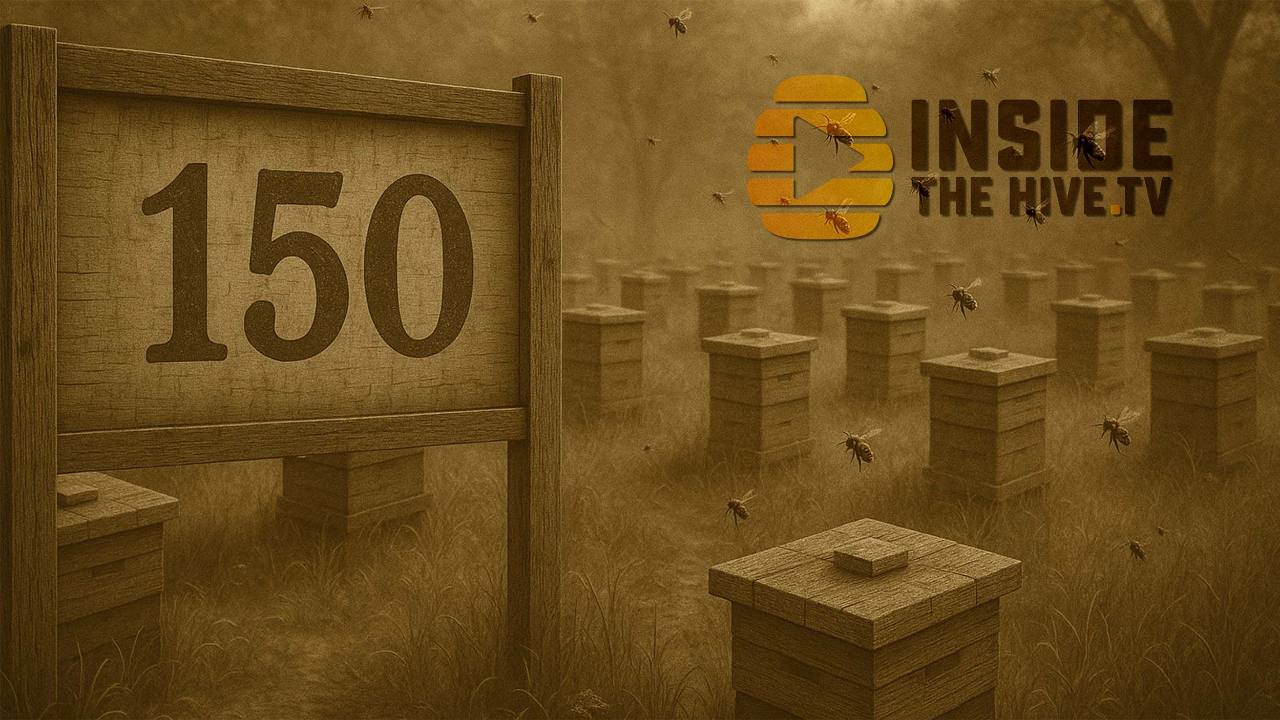What does science say about using non-native probiotics in honey bee health? Part 02
Hello Insiders,
Let's continue our journey to explore whether non-native probiotics can truly benefit honey bee health.
Previously, I discussed a scientific article that provided some evidence suggesting that probiotics might aid honey bees in the honey-making process and shared my thoughts and motivations in the part one of this post.
Today, I'm exploring another scientific article that suggests probiotics might help honey bees mitigate the harmful effects of pesticide exposure.
|
The researchers tested several strains of lactic acid bacteria by growing them in the presence of harmful pesticides (Coumaphos, chlorpyrifos, and imidacloprid) and showed that these bacteria could survive well despite these chemicals.
They also analyzed how these bacteria interacted with the pesticides.
The researchers quantified the ability of these lactic acid bacteria to bind to pesticides and assessed their capacity to reduce pesticide-induced damage using insect, rat, and human cell lines.
The results were promising. The bacteria could bind to the pesticides and reduce the damage to the exposed cell lines, suggesting they might perform a similar protective function inside the honey bee's gut.
However, the question remains: do these bacteria truly perform this function inside the honey bee's gut to a degree that justifies the expense of buying and feeding probiotics to our bees? The scientific literature offers conflicting evidence. While some studies report no significant effects, others, including one I conducted personally, demonstrate positive outcomes.
How can we make the right decisions at home? It's challenging to make science-based decisions when we're at the edge of knowledge, where things aren't clearly defined.
If you feel this way, you're not alone—it's not easy.
Science is not a democracy, as some people think. The majority—whether scientists or beekeepers—can sometimes be wrong. Great scientific discoveries often face intense scrutiny. Take Albert Einstein, for example, who faced significant resistance when he challenged the established understanding of gravity with his theory of relativity.
At first, he stood alone against nearly all other scientists. What ultimately changed people's minds? It wasn’t consensus or popularity—it was evidence. As more and more experiments pointed in the same direction, confirming Einstein’s predictions, the scientific community had no choice but to reevaluate and eventually accept his groundbreaking ideas.
Regarding probiotics, I believe we are at the frontier of our understanding. There may be scenarios where these bacteria provide benefits, but also situations where they do not. Perhaps the better question to ask isn’t simply whether they work or not, but rather when they work and when they don’t.
What I find interesting about the conversations I've had with people involved is that those who are most convinced of one side are often the least capable of providing evidence to support their conclusions.
They usually cite a few articles they really like, but their arguments tend to fall apart when I ask one of the most important questions in science: How many times were those experiments reproduced internally before publication and independently by other researchers?
Then, you can expect a confusing mix of explanations, which can be quite amusing.
A scientist should always exercise caution when presenting findings that lack a significant number of repetitions showing consistent results, verified multiple times by independent researchers.
As I often explain, science is not inherently difficult and should be more accessible and widespread. It follows a straightforward process: formulating a hypothesis, conducting experiments, and repeating them to confirm the results. Without extensive repetition, findings remain inconclusive.
It’s that simple: if results cannot be repeated consistently, we must approach them with caution.
Unfortunately, the current system (academia and goverment institutions) often lacks the freedom and resources to complete work thoroughly, prioritizing quantity of publications over quality. This is one of my biggest issues with academia today—and likely one of the reasons I chose to leave.
Growing up on a farm, I quickly learned that the information absorbed had must work to my benefit—otherwise, plants wouldn't grow, and animals wouldn't thrive.
In the field of honey bee research, we face significant issues with the reproducibility of scientific studies, largely due to high costs, the vast number of variables that are impossible to control in experimental settings, and unfortunately, the presence of bad actors in the system who prioritize fame over genuine research. I'll leave this discussion for another newsletter.
As a scientist not directly specializing in probiotics, I'm much like anyone else at home—trying to figure things out on my own. My advantage is having access to experts in the field and the experience of over 20 years as a scientist, which allows me to discern quality research from weaker studies.
For many people at home, it's difficult to keep up with all the research because they don't have time to read everything, so they tend to follow people they believe are trustworthy authorities, often based on traits like likability, confidence, personality, or position in an institution. In the end, decisions are often personality-based rather than truly science-based.
If you're here because you trust me and want to know my perspective on these topics, thank you. I appreciate it, but I also need to remind you—I might be wrong too.
My advice is to learn how science works. The truth is that with the right attitude and the tools available today, you don't need a degree from an institution. This is another issue in academia—attracting people looking for reputation rather than knowledge.
You'll be amazed to see that it's not difficult, and in a short amount of time, you'll be able to question many well-known figures about how they performed their experiments and reach their conclusions, as well as recognize how much change is needed in the system.
Let's keep pushing forward, as I continue to learn more about the role of probiotics in honey bee health.
I have compiled a list of scientific articles—both supporting and opposing—which I will cover in upcoming videos, and I'll share my thoughts here in the newsletter. Let me know your opinions!
I am considering doing a couple of livestreams once we have a significant amount of information to discuss. Please share this with anyone who might want to learn along with us. So if you are not subscribed to this newsletter, please do so I can update you about the dates.
If you'd like immediate access to part two of the video, along with other exclusive content like my podcast interview with Dr. Giovanni Formato discussing how Italy is dealing with Varroa mites and other pests affecting honey bees, just continue reading below. If you are not a paid member, please consider becoming one. Thank you.
Now for you my premium subscribers...







